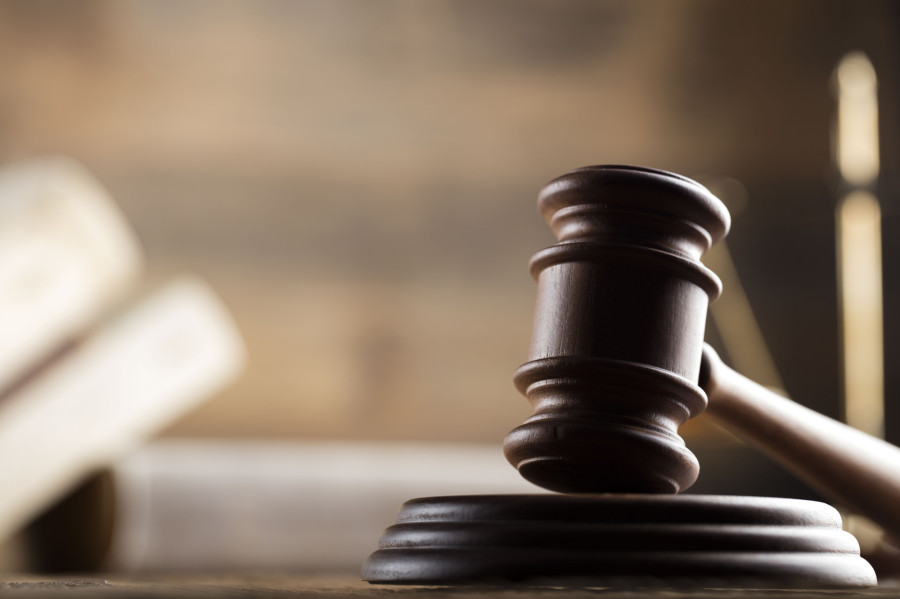Opinion
Justice, interrupted
The NHRC is an important constitutional body and it should be allowed to function independently.
Gyan Basnet
The government’s most recent decisions have decried the norms and values of democracy. The government has—by completely misusing the power of its two-thirds majority—made decisions that go against the very founding principles of democracy, such as controlling press freedom and creating restrictions on social media sites. And now it intends to bring the most important constitutional organ, the National Human Rights Commission (NHRC), within the orbit of the central government, under the office of the Attorney General.
Recently, the government registered a bill to amend the NHRC Act 2012 for presentation to the House of Representatives. According to the proposed bill, the aim is to close the regional and sub-regional offices of the NHRC. Most importantly, any recommendations and decisions regarding human rights issues by the NHRC would now go through the office of the Attorney General (AG). Under the new bill, the NHRC would be compelled to submit cases to the AG’s office along with evidence, and the AG office would retain the power of the final say. It would mean that if the AG’s office did not feel it necessary to recommend investigations in cases, those cases might go unaddressed or even be dismissed. In addition, the amendment bill also requires mandatory consent from the government for any financial support needed by the NHRC in carrying out its human rights related activities.
This whole idea is dangerous, even brutal, particularly in regards to human rights and personal liberties. The government’s intention is clear: to weaken the NHRC by curtailing its constitutional powers and mandates. It intends to bring the institution into the orbit of the government itself. Why is it acting like this now? Why is the government so fearful of the NHRC? The proposed bill indicates many things.
First, the two-third majority communist government is not sincere about human rights and of following the law. Its actions have proven this fact repeatedly. Its intention is clearly to establish a controlled society.
Secondly, the proposed bill is unconstitutional. The bill is against the Apex Court verdict that provides that the government must implement and respect the decisions and recommendation of the NHRC. Article 293 of the Constitution clearly provides that the NHRC must act as an independent and—more importantly—a constitutional body with the power to conduct inquiries and investigations.
Finally, the proposed bill is clearly against international standards of human rights, the UN guidelines on national human rights institutions, and the Paris Principles. In accordance with the Paris Principles, an NHRC should be established and financed by the state, but it must be able to act independently and have clear and well-defined powers to carry out its mandate effectively and efficiently.
The role and value of the NHRC is even more important at a time like this, when the country is in political transition. Firstly, lawlessness is currently widespread, and there is a practice of impunity, a dismal record of governance, and, most importantly, there appears to be no commitment or political will to protect and respect human rights and fundamental freedoms. The rights violations, abuses and extra-judicial killings that occurred during the conflict era are still to be addressed. Perpetrators of the 10-year long civil war have not yet been punished. The victims of conflict have been victimised again and again. The Truth and Disappearances Commission does not function. The role of the NHRC, therefore, is now even more pertinent.
Secondly, no government can ignore basic human rights and fundamental freedoms anymore. Human rights have become the means of measuring the progress of any government. They have become the basis of the rule of law, freedom and democracy. Individuals and authorities in power must understand this. The NHRC is one of the core institutions in the protection and promotion of human rights. Furthermore, NHRC was established to not only implement human rights and protect a people’s fundamental freedoms, but also to provide a bridge between international and national human rights protection mechanisms.
Today, concern for human rights’ protection does not stop at state borders: it is a universal commitment. NHRCs, as protectors and promoters of fundamental human rights, are the links between the international and the domestic systems of human rights protection. The international system now looks to this institution to play significant roles through engagement with its mechanisms and processes.We as a nation are still finding our way to democracy, human rights and political culture. Therefore, NHRC is vital in establishing that very culture.
Finally, human rights, political stability and prosperity are interconnected. The government must be cooperative and helpful, and it must strictly implement the recommendations and decisions of the NHRC. There is no other way. This is the constitutional mandate for the state. Instead of wishing to control the NHRC or other state institutions, the government must allow those institutions to flourish, grow and fulfil their constitutional duties if we wish ever to establish a just society based on human rights.
It is imperative to understand that democracy is not only about voting and choosing representatives; it is about working together, too. It is about establishing an alliance of all state institutions, the media, civil society, the armed forces, and the political forces operating, most importantly, within a constitutional and legal framework respected by all.
Basnet holds a PhD in International Human Rights Law from Lancaster University, UK.




 10.12°C Kathmandu
10.12°C Kathmandu










